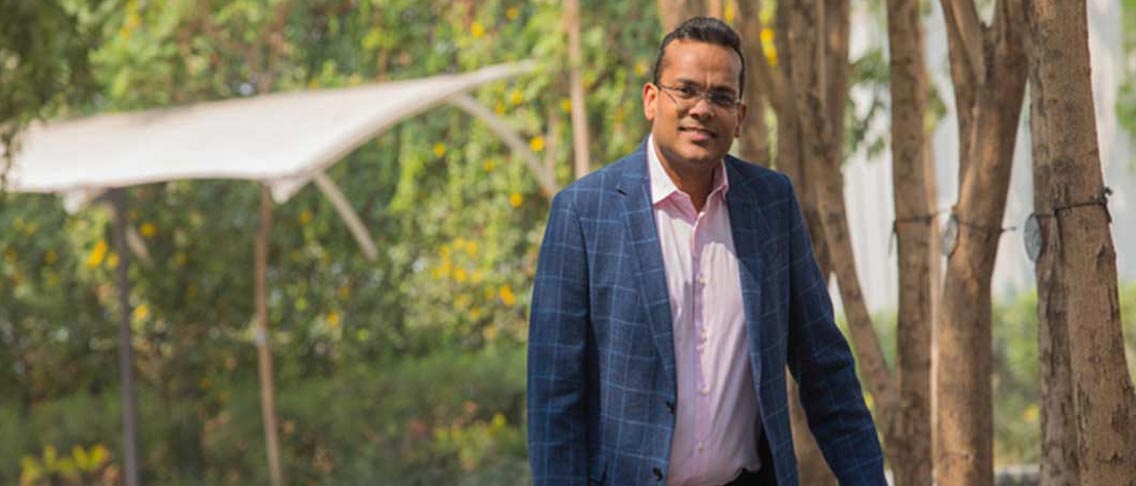- Simon Sinek

Jan 22, 2023
Real Estate like Environment is ubiquitous. Every living human being breathes and consumes a piece of Environment as well Real Estate every moment, every day, every year. While one is a creation of nature the other is a creation of human. This creation of humans however is devouring the creation of nature.
The Real Estate sector is the highest consumer of energy amongst all other sectors and is also a growing contributor to CO2 emissions.
The Real Estate sector is expected to grow dramatically by 2030, as 60% of the global population of over 8 billion people will be living in urban environments. The largest cities across the globe representing 75% of the global GDP will have 260 million new homes and 540 million sq. m of new office spaces. Effectively the construction output will reach USD 15.5 trillion in value. The impact of this humungous growth in Real Estate on environment is going to be substantial.
Globally and in India, air pollution is a major concern in metro cities like Mumbai, Delhi, Kolkata, and Chennai. While multiple factors contribute to pollution, infrastructure accounts for roughly one-third of global greenhouse gas emissions.
Hence sustainability and the environmental safety management is a priority for governments to improve public health. Simultaneously increasing environmental awareness among people is boosting the demand for sustainable and environmentally friendly housing.
More than half the world's population already lives in cities, and this presents a challenge for planners to create sustainable solutions that can meet the burgeoning requirements of the population. At Aurum Ventures we put sustainable practices at the forefront of our operations right from design stage onwards and constantly endeavour to improve the eco-friendly solutions offered to our customers.
To mitigate the impact, we must use human ingenuity on Innovation - Technology. Embracing technology with passion will make a positive impact across the Real Estate Value Chain.
1. Design and Development
Use of advanced Building Design Software helps analyse and reduce active energy usage by optimizing passive energy sources for lighting and ventilation design.
Various Green Building Design technologies in Heating, Ventilation, Air Conditioning have helped reduce the energy consumption per unit in modern buildings.
Modern buildings are laced with self-sustainable sources of energy, heat recovery systems, tapping roof top solar and micro wind turbines to off take part load of building energy demand.
2. Construction
Construction techniques and construction material guided by LEED, IGBC and National Building Codes help optimize usage of natural resources in building construction. Today common examples practiced are usage of concrete blocks with a higher fly ash content, post tension cables in slabs which reduce consumption of steel and use of rerolled steel enables recycling and other such measures.
3. Buy, Sell Rent
The digitization of customer purchase experience has made indirect impact on energy consumption. Real Estate is sold, purchased, and rented on digital multi listing websites not only ensuring ease of purchase and enhanced buying experience but reducing cost of consumption of energy in Sales Offices, energy usage for transportation to visit multiple properties thus reducing the carbon footprint of the project even after its physical completion.
4. Manage
Real time building management software have helped in digital inspections driven by real time data assessment and analytics, predictive and preventive maintenance and bringing more flexibility to energy management and control of built spaces.
5. Inclusive innovation
We have to go beyond human-centred design and focus on environment-centred design. As more business embrace progressive urban planning techniques it is pivotal that we focus on sustainable solutions for people and the environment. The growing infrastructure of cities contributes heavily to construction and demolition (C&D) waste. However today, multiple solutions are creatively being used to recycle and manage C&D waste. This waste is further processed to create construction materials like bricks and aggregates that can be reintroduced into the economy, thus closing the loop for sustainable construction.
Smart homes and technology backed facility management solutions offer manifold benefits. A combination of smart real estate technology and intelligent urban design can mitigate global environmental challenges.
Concept of Walk to Work makes perpetual contribution to reducing the carbon footprint increasing the sustainability.
We stand at a critical juncture today; the pandemic has reminded us that only we ourselves are responsible for the environment and our own well-being. Let us move together towards a sustainable future.
We, at Aurum Ventures constantly prioritise adoption of Technology in Real Estate to conserve the Environment for our future generations. On this occasion of Environment Day, I am glad to pledge that I will personally spearhead our efforts to innovate & leverage technology to make our planet a greener & better place.
Aurum Ventures is a new age Real Estate Company with end-to-end capabilities including acquisition, design development, project management, property management, hospitality, leasing, sales, and technology.
Mr Ashish Deora, CEO and Founder of Aurum Ventures proudly leads a culture of sustainability, innovation, and high growth at Aurum Ventures.
Read more on
Aurum Ventures